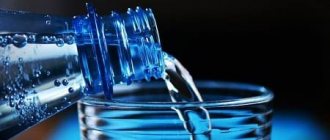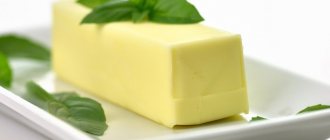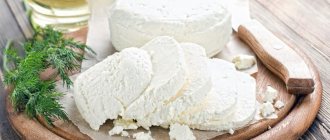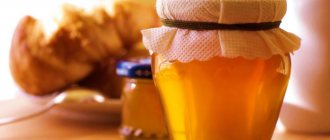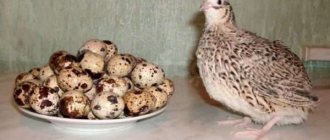Boiling kills all germs, which is why boiled water is considered safe for health by many. In addition, before brewing tea, the water has to be boiled in any case. The question arises: what to do with the remaining boiled water in the kettle? Can it be stored for later use?
Some housewives pour the remaining boiled water from the kettle into a jar and little by little use it for drinking. The good stuff shouldn’t go to waste; besides, electricity was wasted on boiling. And many people consider it irrational to simply pour boiled water into the sink. How correct is this approach?
Are there any expiration dates?
Boiled water, like any other water that is used for drinking and cooking, has strictly defined expiration dates.
This is due to the fact that heat treatment changes its structure and properties.
And although the boiling process itself kills dangerous microorganisms, boiled water is more susceptible to re-infection with viruses and bacteria.
Where is the best place to store it?
Ideal conditions for storing water are a closed enamel or glass container and low temperatures. Only a silver container is better for storage, but where can you get one? Therefore, after boiling, pour the water into a glass or enamel container. And after it cools down, put it in the refrigerator.
It is not recommended to pour into plastic bottles, especially hot water. No matter how good plastic is, it cannot be compared with glass or enamel in terms of safety.
Can I use it after the expiration date?
After the expiration date of water, it is not allowed to be used for drinking or cooking. After boiling, it is able to absorb pathogens, viruses and bacteria from the air.
Use after long-term storage may cause:
- dyspepsia;
- diarrhea;
- intestinal infections.
Cool boiling water is considered the cleanest and healthiest - water immediately after boiling. As soon as it begins to cool, there is an increasing risk of infection by microorganisms. In order not to cause harm to health, it is necessary to throw out expired water and stock up on new water.
Important! It is not recommended to use boiled water for cooking after the expiration date, since repeated heating to 100°C increases the concentration of impurities, including heavy metals.
About boiled water
According to many people, outwardly, all water is the same (tap, bottled, spring, boiled).
But in fact, it has different origins, and because of this, the composition and properties of water are different. Most often, tap water is present in our lives. Usually, it is free of suspended matter and contains a small amount of chlorine. It prevents the growth of harmful bacteria in water. But still, this water can be hazardous to health and it is not recommended to drink it raw. Therefore, many people boil water and leave it in containers for storage in case they become thirsty. However, is boiled water safe? Are there any risks with long-term storage? What is the shelf life of boiled water?
The essence of boiling is to heat the water to one hundred degrees Celsius (boiling point). At the same time, all harmful organisms and bacteria will die in the water. However, this also kills beneficial bacteria, which is also bad. Therefore, it is not recommended to use only boiled water. However, in some situations it is better to boil the water to avoid unpleasant situations.
How to store and for how long?
At home you can use:
- glassware (jugs, bottles, etc.);
- enamel dishes (kettles, pots, etc.);
- ceramic or clay containers;
- products made of high-quality heat-resistant plastic (polyethylene terephthalate), which are marked “PET”.
It is best to store water in glass bottles with a cork cap.
Basic Rules:
Storing water for more than a day is allowed, but provided the air temperature does not exceed 4-5°C.- If the room is hot, you need to change the boiling water more often - every few hours.
- The material from which the water container is made should not react with liquids when heated. For example, plastic containers without the “PET” mark will allow particles of the material to penetrate into the water, which will lead to its toxicity.
How long does boiled water last?
Freshly boiled water is good for brewing drinks. But as soon as it cools down, microorganisms begin to appear and accumulate in it.
The container in which the water is stored, as well as the ambient temperature, are of great importance. In the refrigerator, in glass or enamel-coated containers, water will not spoil longer than in a plastic container, especially in warm conditions. Anyway:
It is better to use boiled water within 1 day. The next morning, pour out the remaining from yesterday, collecting and boiling fresh.
Moreover, boiling water is not very difficult. But if you do not remove the remains of previously boiled water, sediment will gradually accumulate at the bottom.
It is better to pour out the remaining “old” water from the kettle for the same reason - so that sediment does not accumulate. In addition, repeated boiling negatively affects the composition of the water.
The more often you boil the same water, the worse it becomes. Each repeated boiling increases the concentration of harmful impurities.
Therefore, the healthiest water is considered to be just boiled water once, which is used for brewing tea and drinking tea. Because after heating to 100 degrees there are no microbes in it, and the content of harmful impurities is minimal.
In various institutions
According to SanPiN 2.4.2.2843-11 for educational and health care children's institutions (including preschool educational institutions), water must be stored in enamel kettles. At the same time, it is forbidden to heat it in pans and other dishes not intended for this purpose.
After boiling for a long time (from 5 minutes) in an electric heater, it is immediately placed in teapots, where it cools. SanPiN determines measures for storing boiled water only for children's institutions.
In other (“adult”) organizations, SanPiN 2.1.4.1116-02 applies. These rules apply to all types of drinking water:
- Storage no more than 24 hours.
- Air temperature from 5 to 20°C.
- Closed storage containers.
- Avoid exposure to direct sunlight.
Storage rules
Boiled water, like raw water, is used for drinking and cooking. Like other products, it has strictly defined expiration dates. During heat treatment, a change in the chemical composition and properties occurs. Heat treatment destroys bacteria, but as a result, the water is more susceptible to subsequent contamination, so it should not be stored for a long time.
Deadlines
Depending on the temperature at the storage location, the timing may vary:
- Room conditions - maximum 24 hours .
- In the refrigerator - no longer than 3 days . In the cold, the rate of development of microorganisms is reduced.
SanPin standards 2.4.2.2843-11 strictly regulate the storage periods of boiled water for kindergartens and other institutions. In kindergartens, water can only be used within 3 hours from the moment of preparation. For other organizations, the maximum expiration date is set at 1 day .
Conditions
In order for water to retain its properties longer after boiling, the following conditions must be provided:
- The container must be hermetically sealed.
- Avoid exposure to direct sunlight. In this case, being in a room with diffused light is allowed.
- It can be stored for longer than 24 hours only at a temperature not exceeding +4°С-+5°С . A refrigerator is ideal.
- If the room temperature is high, the water needs to be changed every few hours.
- The material of the vessel must be inert to water (not enter into chemical reactions). In particular, inertness must be maintained upon contact with hot water. Regular plastic without the “PET” mark can release toxic substances when heated.
The following can be used as containers at home:
- Glass vessels (jars, bottles, jugs, etc.).
- Ceramic containers.
- Enameled dishes (pots, bowls, teapots, etc.).
- Products made from special food-grade plastic that is resistant to high temperatures. The container must be marked “PET”.
The best option for storing at home is glass bottles with airtight lids. It is better that the lids are made of balsa wood.
Use after expiration date
Expired boiled water should not be used for cooking or drinking. As a result of heat treatment, it begins to more actively absorb pathogenic bacteria and viruses from the environment. As a result, after some time it can become even more dangerous than in its raw form.
Drinking boiled water that has expired is fraught with the following consequences:
- Dyspepsia.
- Intestinal infections.
- Diarrhea.
The safest and cleanest water is immediately after boiling . During cooling and subsequent storage, it can become contaminated with bacteria. Therefore, you should not drink expired water. In addition, using such water for cooking is even more dangerous, since repeated heating to +100°C leads to an increase in the concentration of heavy metals and other toxic substances.
Distilled
To produce distilled water, special equipment is used - distillers.
The liquid is purified from various impurities - salts, gases and other substances. The output is crystal clear water, similar in composition to melted ice. The substance is an excellent solvent. Unlike ordinary tap water, it begins to boil at a higher temperature. It is used for technical and household needs. Most common uses:
- Caring for internal components of vehicles;
- Production of detergents;
- Air humidification using special devices;
- Ironing;
- Cleaning precision measuring instruments;
- Laboratory research;
- Production of medicines.
Distilled water is suitable for human consumption. For example, it is present in the Italian grape-based alcoholic drink (grappa). However, it is not suitable for daily drinking due to the lack of mineral salts and beneficial elements that play an important role in a complete human diet. It has been noticed that a low content of salts and other substances increases the likelihood of vascular and heart diseases.
Therefore, distilled water is much more often used for pharmacological and technical purposes. The production of liquid is regulated by the Russian state standard number 6709-72. If the water is used for pharmaceutical substances, the storage time is only 3 days after production.
After 3 days, the water oxidizes, which causes distortion of test results, deterioration in the quality of medications, etc. As for other areas of application, the duration of storage of the substance can be unlimited. The most suitable containers are plastic bottles, ceramic and glass vessels. It should be noted that when stored in tightly closed containers, the substance begins to smell musty over time. To avoid unpleasant consequences, calcium chloride tubes filled with lime from the inside are attached to the lid. Then cover with cotton wool.

